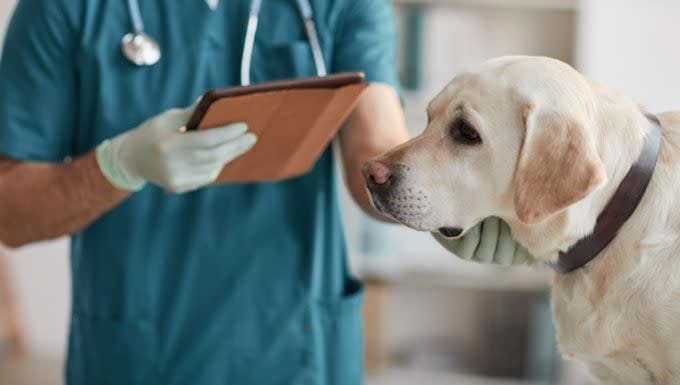Rotavirus Infections in Dogs: Symptoms, Causes, Treatments


(Learn more about rotavirus infections in dogs. Picture credit: SeventyFour / Getty Images)
Rotavirus infections in dogs are a type of intestinal viral infection. The condition often causes diarrhea and stomach problems.
Generally, younger puppies suffer from the condition the most. Additionally, the condition is zoonotic. This means it can be passed between dogs and humans.
Thankfully, the condition often clears up of its own accord.
If you see the signs of the condition in your dog, then get to a veterinarian for a proper diagnosis and treatment.
Here’s what you should know about the symptoms, causes, and treatments for the condition.
Symptoms of Rotavirus Infections in Dogs
The condition produces a small range of symptoms. For example, some of the most common symptoms include:
Diarrhea
Loss of appetite
Loss of weight
Dehydration
Fever
Causes of Rotavirus Infections in Dogs

(Picture credit: FatCamera / Getty Images)
The cause of the condition is usually a dog coming into contact with infected poop. Additionally, the following factors increase a dog’s chances of becoming infected:
Overcrowded living situation
Bad hygiene
Being around feral dogs
Generally, puppies suffer from the condition more than adult dogs.
Treatments for Rotavirus Infections in Dogs
Firstly, your vet will ask about your dog’s symptoms. Secondly, your vet will ask about any circumstances where your dog could have become infected.
Thirdly, your vet will want to rule out other infections. These can include canine coronavirus, parvovirus, and distemper.
Generally, lab tests can confirm the decision.
Treatment focusses on your dog’s symptoms. This includes stopping any diarrhea and dehydration. Sometimes, this will involve changing your dog’s diet. Your vet will formulate a safe diet for your dog.
Generally, it is important to keep a dog with the condition away from other dogs and children. This is to avoid passing on the infection. Cleaning and disinfecting your dog’s living area is also key.
Have you ever cared for a dog who suffered from this condition? How did your vet help your dog recover? Let us know in the comments section below.
The post Rotavirus Infections in Dogs: Symptoms, Causes, & Treatments appeared first on DogTime.

